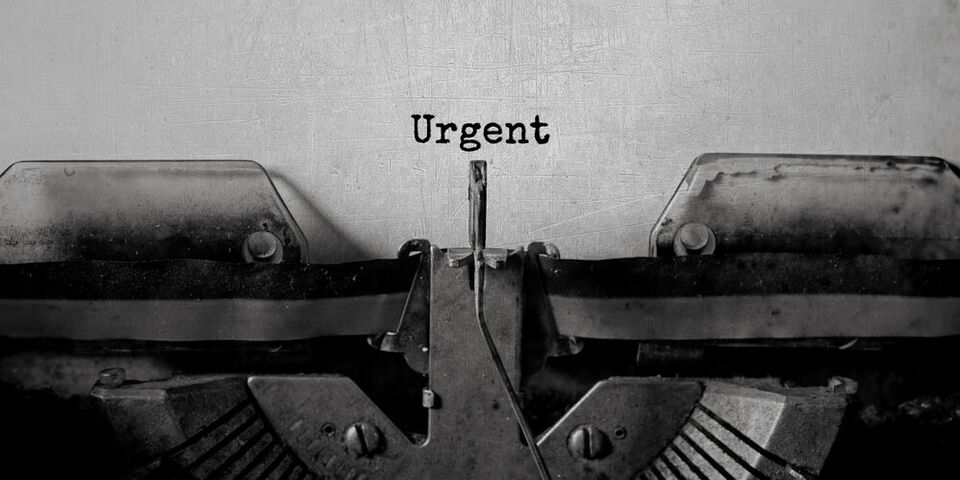TGD and EHL concerned about police actions against UR
Statements have appeared on the websites of Technology for Global Development (TGD) and the Eindhoven History Lab (EHL) since Thursday March 31 in which both TU/e organizations express their concerns over police actions against members of University Rebellion during the Career Expo on March 15. These ‘massive police actions,’ the organizations say, were ‘unacceptable,’ given the nature of the protest. Henny Romijn, associated professor at TGD and one of the two initiators for putting the statements online, wants the Executive Board to make a statement about it.
Professor Erik van der Vleuten, chair of the Eindhoven History Lab, says that there is a widespread awareness among members of his group’s staff of the police actions against members of University Rebellion during protests on March 15. Van der Vleuten: “That applies both to us here in the workplace at Atlas and the teachers I speak to outside of Atlas. As teachers, we naturally support the students and their right to a safe learning environment. I think that all teachers will agree with that. Even though they might refrain from making a statement because they are too busy with their daily affairs, or because they’re not quite certain yet of the ‘exact facts and circumstances.’ We are strongly committed to TU/e’s policy on social safety. I myself took the university’s active bystander training, which clearly teaches you to do something or make yourself heard – when you see it happening or at a later stage – whenever you identify inappropriate behavior, or else you normalize that unsafety. We believe that this is what happened here. It shouldn’t become normal for the police to intimidate and intervene during a protest, no matter how annoying it may be. That’s a direction we definitely shouldn’t go into.”
Safe space
Van der Vleuten notices that a number of teachers at TU/e, “but not those at EHL or TGD,” are reluctant to make a statement, saying that the exact circumstances still remain unclear. “That was why I decided to formulate our statement as a general principle. Both research groups, TGD and EHL, focus on the role of engineers and technology in social transitions and sustainability transitions. At the same time, I also notice a lack of consensus among TU/e teachers – again: not among teachers in our groups – on how the discussion on sustainability should be held at TU/e, and on what role protests should play in that discussion. That is why our primary focus is on the campus grounds as a safe space; that should be the central thread. TGD does explicitly focus on the contents, on sustainability issues. I agree with TGD as regards contents: after all, we as transition researchers know that social and sustainability transitions are generally characterized by a permanent interaction between attempts ‘from within’ and ‘from outside’ to bring about change.”
Joint initiative
Associate professor at TGD Henny Romijn, who took the initiative – together with Van der Vleuten – to put the statements of both groups online, says TGD’s newly appointed chair Guus Pemen wasn’t actively involved with the initiative. Romijn: “But he does endorse the statement that can now be found on the TGD site. Van der Vleuten and I are close colleagues in the same section Technology Innovation & Society (TIS) of the subdepartment Innovation Sciences. The incident of March 15 was discussed extensively within this section, especially since we know some of the students who took part in the protest personally. The courses we give are at the interface between technology and society, and that appeals to students who are aware of all kinds of social issues and who want to be actively involved with these issues.”
Support
The initial goal, according to Romijn, was for the TIS group to address the Executive Board with one common standpoint, but that proved to be impossible in the end, she says. “Van der Vleuten and I then took the initiative to express our views via our two organizations. This time around, there was support from within those organizations.”
Prior to publication, there was no contact with the Executive Board concerning the statements, Romijn says. Van der Vleuten and Romijn didn’t know at that point that certain University Rebellion members had met with the Executive Board on Thursday morning March 31, in the presence of Anna Wiezcorek, TU/e’s sustainability ambassador. Romijn: “I only heard about that later that night from three students who were involved with the protest. They all gave me their own account of what had happened, but the content of their stories was generally the same. After I had heard the stories from these students, the words I had written below the links to our statements became even more relevant.”


Discussion